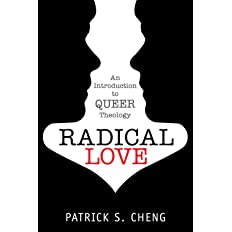The spirit of inclusion is at the heart of our Catholic faith. But the Catholic Church, especially within its schools and institutions, has lost that spirit. I write this as a unique voice, one that is not heard often enough.
As an 18-year-old gay student at an all-boys Catholic preparatory school, I am no stranger to anxiety, depression and confusion. Looking back, I can say with certainty that the Holy Spirit led me to the school where I have spent six years. Yet throughout my years in Catholic education, I have struggled to understand why I was led to my school.
After days filled with too many insinuations by my peers, my darkest nights were spent pondering my place at school. I heard remarks about everything that made me gay: my hair was too nicely fixed, I sang in the choir, I conversed with my teachers, I spoke with an erudite tone and walked a little too proudly.
Obviously, none of these made me a homosexual, despite a school culture that was resolute in asserting that they did. Even though I never abandoned who I truly was—a musician at heart, a zealous student, and a well-presented person—I never felt authentic. I denied every accusation that I was not straight, avoiding most social settings where this charade might be exposed to those who whisper, “I told you so. He’s a f-g.”
“Eyes that Have Cried”
Perhaps this is why it took me so long to come out to my peers. I wasn’t afraid to be gay, or even to be out. No, I was deathly afraid to prove what my antagonists had said about me for so long. I didn’t care if people called me gay.
I am a happy homosexual, after all. I cared that, to my peers, the word gay wasn’t an innocent affirmation of my sexual orientation; it was a synonym for stupid, repugnant, and unacceptable. I saw how other older and out gay students were treated at my school and at surrounding Catholic schools. Quietly confiding in them and witnessing all the pain they experienced publicly and privately, I feared that I, too, would become another battered and subdued student.
I was outraged that any school, let alone a Catholic one, would allow a normalization of cultural exclusion—of this persecution, often subtle enough to be dismissed by a disciplinarian or teacher, yet such a source of abysmal suffering for queer students.
The dissonance between the love of Christ that I knew to be true and the judgement of my church, my school, and my peers was deafening. Eventually I entered into my own Gethsemane. I pleaded to understand. I wept to be freed from my cross.
“I was outraged that any school, let alone a Catholic one, would allow a normalization of cultural exclusion.”
Henry Herbert, Jr.
The lockdown and subsequent online schooling of March 2020 provided a time of epiphany for me. I found myself drawing closer to Catholicism, studying the Catechism more closely, listening to lectures on conscience and Scripture, and delving deeply into the lives of the saints. I was struck by these words of St. Óscar Romero: “There are many things that can only be seen through eyes that have cried.”
I know that my straight peers will never truly understand the pain that they caused me, or unknowingly still cause to others. Yet, in my suffering, I realized that this is the reason God led me to my school: Only people like myself, a gay student in a Catholic school, can open unseeing eyes to the issues faced by LGBTQ+ youth.
Catholic school support for queer students should not remain in the closet
After coming out, I received more positive responses than I ever expected. Though I now have a comfortable system of support, I feel justified in critiquing Catholic schools.
I should not have had to come out in order to know that I have dignity. Catholic schools’ support and acceptance should not remain in the closet along with their fearful queer students. I carry the emotional weight of any hurting LGBTQ+ student in a Catholic school. Further, I feel a responsibility to affect change for their sake. I still hear students using the same insults used by their parents against a prior generation of LGBTQ+ people who fought for greater acceptance when their hour came. I recognize that mine has come, too. I have an obligation to continue this fight.
Especially as a Catholic, this call could not be more evident: to stand up for the oppressed and downtrodden “not with fleeting words but through concrete, simple and courageous examples,” as Pope Francis has affirmed. It bewilders me that Catholic schools, the same ones so accustomed to pro-life marches and clubs, fail to recognize the urgent life issue in their suffering LGBTQ+ students.
Just note a few astonishing statistics: The Trevor Project’s 2021 National Survey on LGBTQ Youth Mental Health found that “42% of LGBTQ respondents seriously considered attempting suicide in the past year.” In addition, “72% of LGBTQ youth reported symptoms of generalized anxiety disorder in the past two weeks” and “75% of LGBTQ youth reported that they had experienced discrimination based on their sexual orientation or gender identity at least once in their lifetime.” These percentages only increase when looking at the responses of transgender youth alone.
“Only people like myself, a gay student in a Catholic school, can open unseeing eyes to the issues faced by LGBTQ+ youth.”
Henry Herbert, Jr.
This is a crisis that Catholic schools seldom discuss or attempt to address. I am lucky to have only experienced the degree of torment that I did. Other LGBTQ+ students, especially transgender students, are often denied admission into Catholic schools, something that should be humiliating for institutions that were founded to address the urgent needs of abandoned, suffering, and desperate youth.
These realities clearly emphasize this fact: words contain immense, life-changing and, sadly, life-ending power. For a church so quick to condemn, it is no wonder that even the smallest statements of love and support mean so much to the LGBTQ+ community. The church, clergy and laity alike, has a responsibility to extend God’s love and mercy before any judgment or censure.
Because they care for adolescents during a a crucial time of emotional and spiritual development, Catholic schools have an even greater responsibility not only to affirm the dignity of human life, but to support those groups who seldom see the effects of this unwavering truth: All people, regardless of sexuality, gender, race, disability, religion, or lifestyle are worthy of love and respect.
Our Catholics schools must do more than release vague statements against general bullying in an attempt to lessen the agony of LGBTQ+ students. These schools must specifically condemn the particular words and beliefs that pierce us as a unique community, not simply as an another group of people.
Why Do Young People Leave the Church?
What Catholic schools do is not only important to their students, but also essential to the survival of the church, as many young Catholics are fleeing from the faith.
Some argue that this trend is due to poor catechesis, more relaxed liturgies, or a dominant secularism within our world. While the secular world has done a fantastic job propagating its views, the church, for its part, has refused to address many of the issues of our age.
Instead of the post-Vatican II blame game that has too often obstructed meaningful conversation, I believe that youth, are leaving the church for a different and more apparent reason: They do not recognize the version of Christ that the church espouses today. It is no surprise that young people are angry to see a large portion of the church willingly align itself with the belief that some lives clearly matter more than others.
This couldn’t be more evident than to the LGBTQ+ community. Young Catholics see many pastors and bishops who are reluctant to stand up for many marginalized groups, and so these supposedly “lost sheep” cannot help but recognize the hypocrisy of their leaders and question their authority.
How often do church leaders, for example, stand up for LGBTQ people? As a result of the church’s unwillingness to stand up for our community, many young people, and not simply young queer people, believe that what the church currently promulgates is not truly Christ’s message. When they see a church that is not inclusive, they find it hard to see Christ in the church. And so they leave.
I am often asked why I would ever be willing to become a confirmed member of what some view as a dusty, old, and regressive Roman Catholic Church. Further, why I would ever want to effect change in its often backwards-thinking schools?
“I believe that youth, are leaving the church for a different and more apparent reason: They do not recognize the version of Christ that the church espouses today.”
Henry Herbert, Jr.
But I stay for the same reason I was called. The Church is not its hierarchy or institutions, but its people. Or, to use the language of Vatican II, it is the “People of God.” During the “dark age” of my life as a queer student in my Catholic school, I saw Christ embodied in a select group of people. My theology teachers pushed me to see through the politics and human error and into Christ. They were the church for me.
As I see it, too much is at stake if we do not reform the way that Catholic schools treat and educate their students, specifically if they do not foster a more inclusive environment. Explicit discussions about how to support underrepresented groups not only benefit the dispossessed, but also encourage those who do not share in their suffering to have a personal conversion.
Dorothy Day said, “The greatest challenge of the day is: how to bring about a revolution of the heart, a revolution which has to start with each one of us.” Laws, theoretically, alter people’s public actions, but it is within the hearts of people where true revolution must take place to change society for the better.
Catholics are in the business of doing just that: bringing into hearts, and in turn into the world, a greater love and appreciation for all of God’s creation, which shines brightly through the diversity and beauty of this world and its people.
Listen to Us
I invite all leaders in Catholic schools and within our church to address the needs of the LGBTQ+ community, to listen to us, to hear how we suffer, and to respond with real action. Signing a statement condemning any discrimination or bullying towards LGBTQ+ people and youth, such as the Tyler Clementi Foundation’s statement from Catholic bishops and organizations, is a simple but immensely important first step.
Yet it is just that: a first step. Catholic Social Teaching compels us to go beyond acts of charity to bring about justice. It is the task of the church to discern once more and be a home for its people. The invitation is for all Catholics, LGBTQ+ people and allies alike, to discover how to more effectively and authentically extend Christ’s hand to all.
To all those LGBTQ+ students in Catholic schools who are scared to come out, why not listen to the words of Pope St. John Paul II: “We are an Easter People and Alleluia is our song!” With trust in Divine Providence, we must not abandon our cross but, like Christ, face persecution and rise above it to shape the world into one that we should have known sooner. We must trust that our own Easter Sunday is nearing.




0 Comments